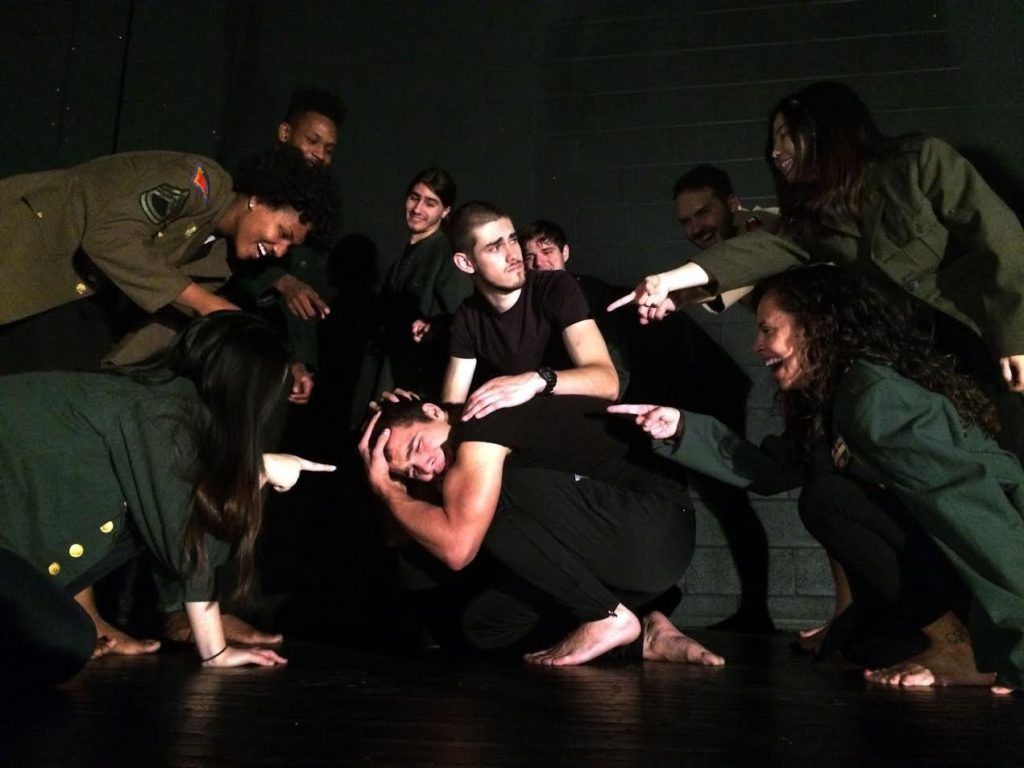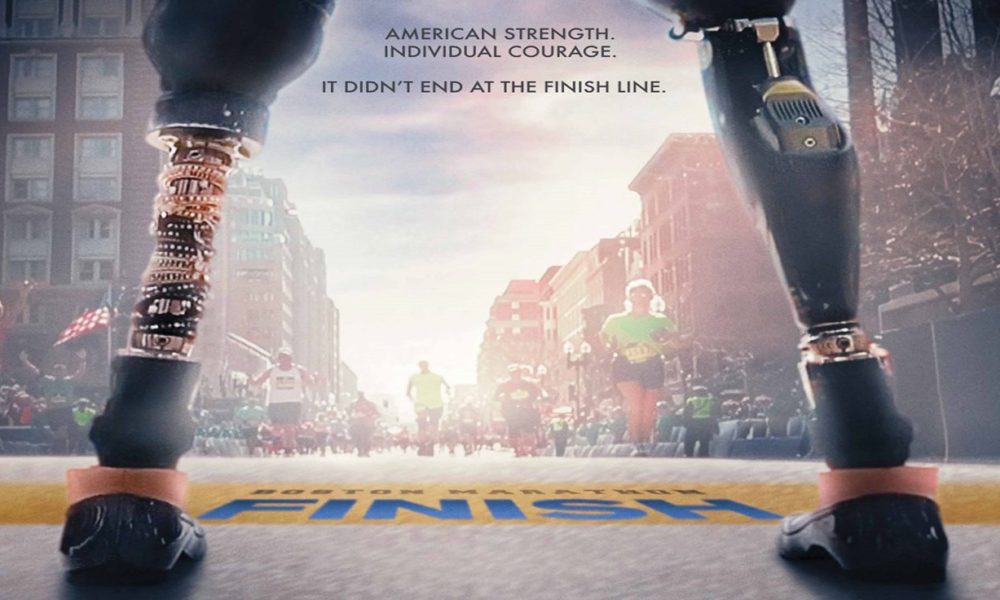Woyzeck, a 19th century play written by George Büchner (1813-1837), was first performed in the year 1913. The play was actually never finished by Büchner himself, but was completed by various authors. Thus, scenes are not set in a chronological order and are left fragmented – much like Woyzeck’s logic. Woyzeck is being performed at the Staller Center. It is being directed by Izumi Ashiwawa, who is also a faculty member who works in the Theatre Arts Department at Stony Brook University. The cool thing about Woyzeck is the blatant psychological trauma and humiliation that he endures. Although it is discomforting to watch a poverty stricken and mentally ill army barber lose his sanity throughout the play, this tragedy is based on a true story about a criminal case.
The play is an interactive one, so the performance feels as if the audience is experiencing what the actors go through. This approach helps us relate to how Woyzeck (Christopher Johnson) experiences his psychological trauma, which is disturbing because we watch as Woyzeck exhausts himself with his hallucinations, delusions, and lack of connecting with reality for an extended period of time. His face literally zones out, zones back in, and he can be found stabbing the air without being provoked while he is at work shaving his captain’s beard (Frank Murdocco). I was impressed with how Johnson portrayed a seriously debilitating mental disease. One can be left wondering if he has ever felt the pain he is only supposed to portray. I was impressed by all of the actors. They did an incredible job showing the perfect facial expressions in response to their situation as performers in this play.
While I looked among the faces in the crowd during my second showing of Woyzeck, I could see the discomfort in people’s faces. For instance, who knows how to respond to some of the eerie scenes, like when the showman (Thomas Diblasio) asks the audience to pet “the monkey” (Yiru “Cynthia” Hu) while we watch someone with a horse mask ( Xi (Casey) Ge) make odd hand gestures about 50 feet up in the air on the scaffolds. Though Woyzeck is not directly in this scene, I thought that the absurdity of the scene prepared us for the humiliating tone of the play. That is, I did not know what to expect next from the play.
The play is interactive, we get that part. The thing is, I wouldn’t know how to interact with a doctor (Konstantinos Mouskas) that wants to force Woyzeck to urinate in a cup with his legs spread open into the air while everyone watches, or play a part among the experimenters during Woyzeck’s evaluation.
Woyzeck finds himself in a brawl out scene at the local pub. He successfully gets one punch in, but is humiliated in the fight when he loses to the drum major (Cary Lamb Jr.) in front of bystanders who cheer on the drum major. The drum major is also having an affair with Woyzeck’s wife Marie who is played by Eloisa Baez. Since Woyzeck’s mental illness makes him very unstable, he finds himself hearing voices that are laughing at him in some scenes (portrayed by actors who play the role of the voices, Kristen Spencer, Thomas Diblasio, Yiru “Cynthia” Hu, Konstantinos Mouskas, Frank Murdocco, Xi (Casey) Ge). This is totally awkward to watch in Woyzeck, because you are vicariously experiencing the suffering that he endures, and you don’t really know what to do or how to even help as an audience. It’s a humiliating social situation for Woyzeck and the audience.
Woyzeck is not only tormented by his own violent outbursts, but also suffers the humiliation of being cheated on. Woyzeck’s retaliation leaves me speechless. This pivotal scene is almost worse than what he hears in his head, the suicidal ideation of voices telling him to “stab” himself. He betrays Marie’s trust with an uncontrollable and impulsive urge to satiate in his, quite literally, insane feelings of jealousy by reacting in violence. Both scenes display an uncomfortable level of anxiety and tension in me because I feel bad about Woyzeck’s heart. We are also humiliated by the situation when one may mistakenly laugh at Woyzeck’s disease when the other actors are laughing at him, and we can be an interactive audience. Now, that was an embarrassing moment for me.
I definitely think that Woyzeck has some amazing lines in the play. Ironic, huh? Well, one of these lines is: “You don’t need to wear shoes to go to hell.” When Woyzeck dances with a dancer (Kristen Spencer) he wonders why she is so warm when she will be cold in hell one day. She departs from dancing with Woyzeck to find something displeasing on her hands. She screams. She shouts in agony. This is Woyzeck: the feeling of psychological anticipation.




Comments are closed.